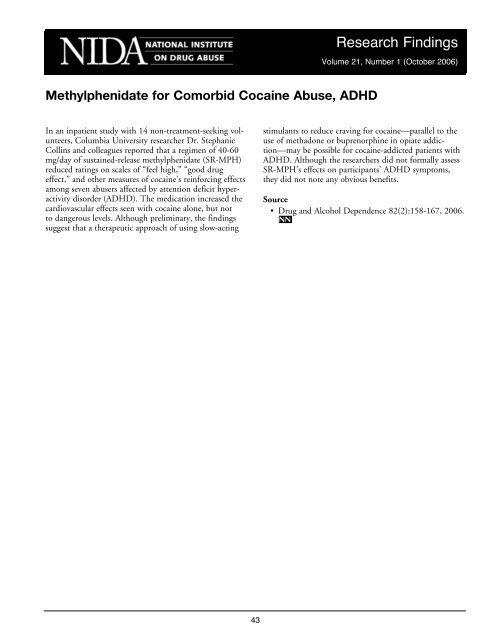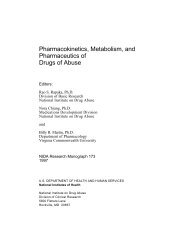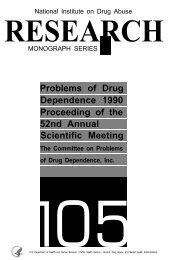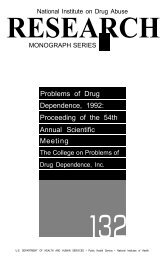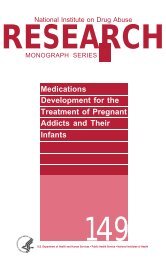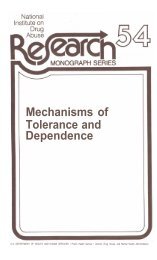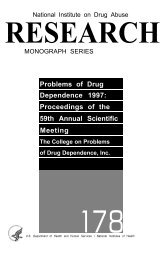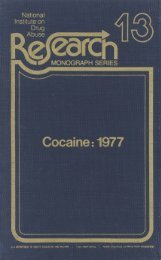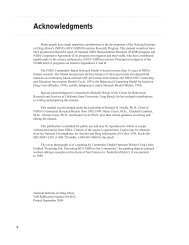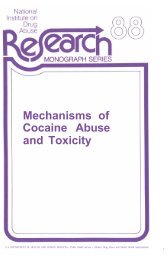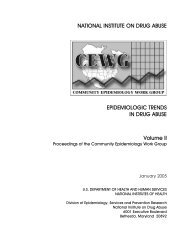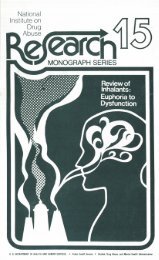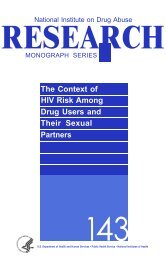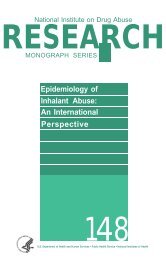Research on Cocaine - Archives - National Institute on Drug Abuse
Research on Cocaine - Archives - National Institute on Drug Abuse
Research on Cocaine - Archives - National Institute on Drug Abuse
You also want an ePaper? Increase the reach of your titles
YUMPU automatically turns print PDFs into web optimized ePapers that Google loves.
Methylphenidate for Comorbid <strong>Cocaine</strong> <strong>Abuse</strong>, ADHD<br />
In an inpatient study with 14 n<strong>on</strong>-treatment-seeking volunteers,<br />
Columbia University researcher Dr. Stephanie<br />
Collins and colleagues reported that a regimen of 40-60<br />
mg/day of sustained-release methylphenidate (SR-MPH)<br />
reduced ratings <strong>on</strong> scales of “feel high,” “good drug<br />
effect,” and other measures of cocaine’s reinforcing effects<br />
am<strong>on</strong>g seven abusers affected by attenti<strong>on</strong> deficit hyperactivity<br />
disorder (ADHD). The medicati<strong>on</strong> increased the<br />
cardiovascular effects seen with cocaine al<strong>on</strong>e, but not<br />
to dangerous levels. Although preliminary, the findings<br />
suggest that a therapeutic approach of using slow-acting<br />
43<br />
<str<strong>on</strong>g>Research</str<strong>on</strong>g> Findings<br />
Volume 21, Number 1 (October 2006)<br />
stimulants to reduce craving for cocaine—parallel to the<br />
use of methad<strong>on</strong>e or buprenorphine in opiate addicti<strong>on</strong>—may<br />
be possible for cocaine-addicted patients with<br />
ADHD. Although the researchers did not formally assess<br />
SR-MPH’s effects <strong>on</strong> participants’ ADHD symptoms,<br />
they did not note any obvious benefits.<br />
Source<br />
• <strong>Drug</strong> and Alcohol Dependence 82(2):158-167, 2006.


